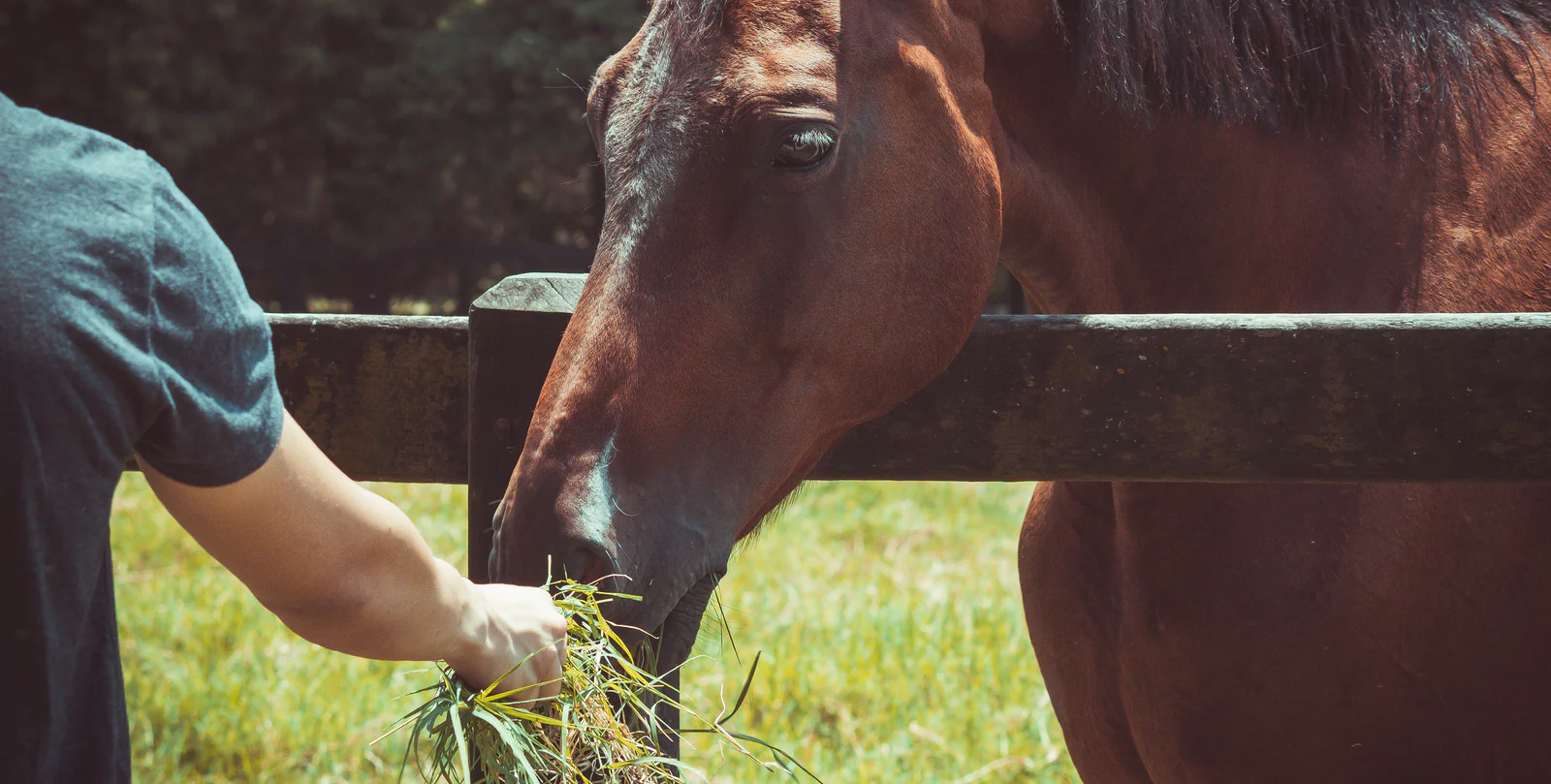When it comes to maintaining the health and strength of your horse, providing a proper diet is just as important as training and exercise.
A well-balanced diet ensures that your horse has the energy to perform tasks, maintain healthy body weight, and recover quickly from strenuous activities. In this blog, we’ll explore the essential foods that should be a part of your horse’s daily nutrition, helping him stay strong, fit, and energetic.
1. Hay: The Foundation of a Horse’s Diet
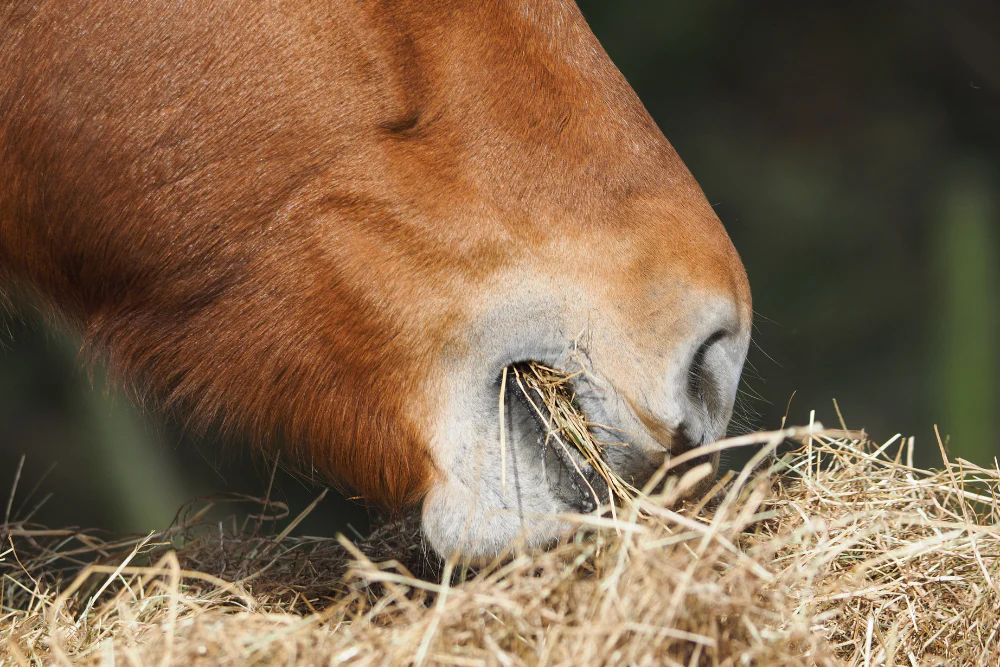
Hay is the cornerstone of any horse’s diet, providing the necessary fiber that aids in digestion and keeps the horse’s gastrointestinal system functioning properly. There are several types of hay available, but the most common varieties are timothy hay, alfalfa hay, and oat hay.
- Timothy Hay is generally preferred for adult horses, as it’s rich in fiber and low in protein and calcium, making it ideal for maintenance.
- Alfalfa Hay is higher in protein and calcium, making it suitable for young horses, pregnant mares, or horses in heavy training. However, it should be fed in moderation to prevent an excess of these nutrients.
It’s important to provide hay free of mold or contaminants, as poor-quality hay can lead to respiratory problems and other health issues.
2. Grains: Energy Boosters for Active Horses
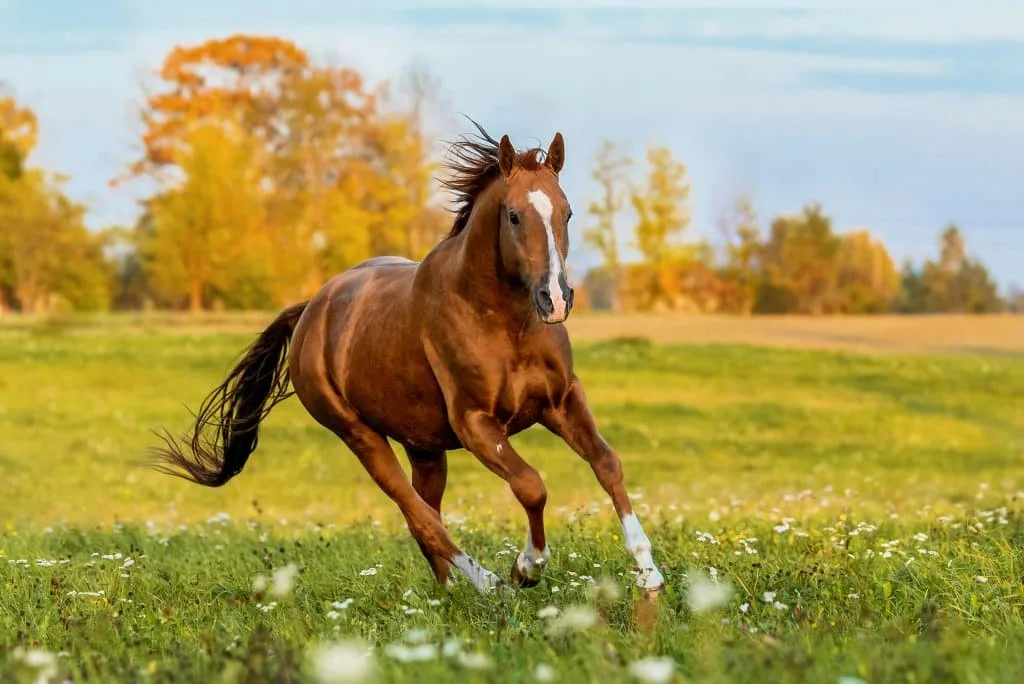
Grains like oats, barley, and corn are commonly included in a horse’s diet, particularly for those with higher energy needs. These grains provide the carbohydrates and fats that fuel your horse’s muscles, giving them the energy required for strenuous work or athletic performance.
- Oats are the most natural and popular grain for horses, offering easily digestible energy.
- Corn is a calorie-dense grain, providing high amounts of energy, which is great for horses in intense work or those with a hard time maintaining weight.
- Barley can also be used as an energy source and is particularly useful for older horses or those with digestive issues since it’s easier on the stomach.
It’s essential to feed grains in moderation to prevent weight gain and ensure proper digestion. Overfeeding grains can lead to metabolic issues, such as laminitis.
3. Fresh Grass: Nature’s Own Power Food
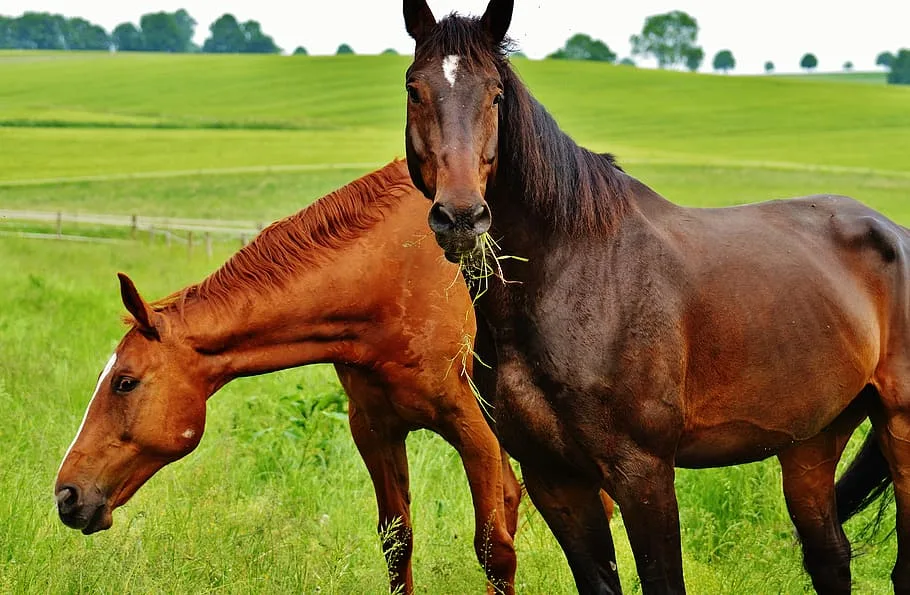
For horses kept on pasture, fresh grass is a highly beneficial part of their diet. It provides a natural source of fiber, vitamins, and minerals. The abundance of nutrients in fresh grass, such as vitamin A, vitamin E, iron, and calcium, makes it an excellent supplement to hay. However, depending on the season, the quality of the grass can vary.
- Pasture grass should be lush and free of toxic plants.
- In winter or during drought periods, horses may not have access to fresh pasture, so high-quality hay should replace the missing nutrients.
If you’re unable to provide pasture time for your horse, consider supplementing their diet with high-fiber hay or haylage.
4. Supplements: The Missing Nutrients
Even the most carefully planned diet may lack some vital nutrients. This is where horse supplements come in. There are several types of supplements designed to fill nutritional gaps, including vitamins, minerals, amino acids, and electrolytes. Supplements should be used to complement the horse’s natural diet, not replace it entirely.
- Electrolytes help maintain fluid balance and are particularly important after exercise.
- Biotin and methionine are often included in hoof supplements to promote strong, healthy hooves.
- Omega-3 fatty acids support the horse’s skin, coat, and overall immunity.
It’s essential to consult with a veterinarian before introducing supplements to ensure the correct dosages and prevent imbalances.
5. Water: The Essential Nutrient
A horse’s diet wouldn’t be complete without adequate fresh water. Water is essential for proper digestion, circulation, and body temperature regulation. Horses should always have access to clean water, especially after exercise or feeding, as dehydration can quickly lead to health problems.
A well-hydrated horse has better stamina, digestion, and muscle function, so always check that your horse is drinking enough water, particularly during hot weather.
6. Fruits and Vegetables: Natural Treats for Health
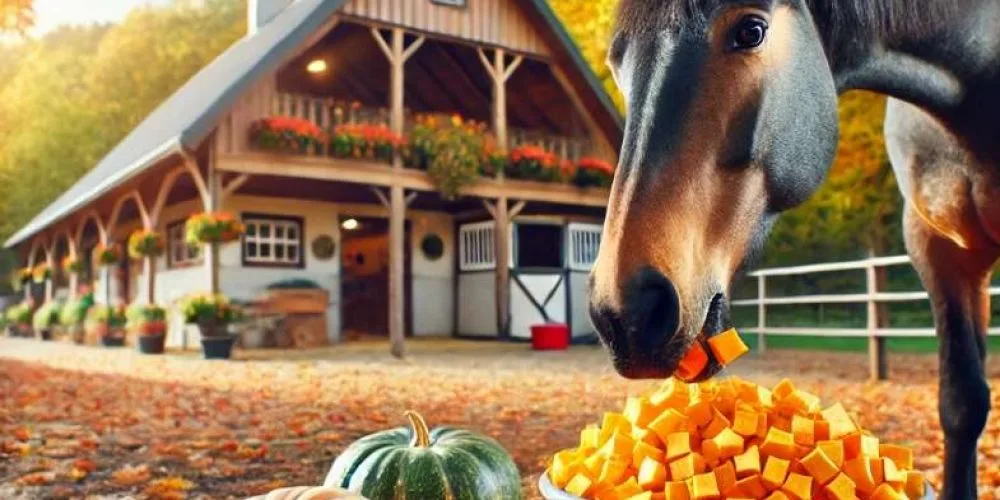
Many horses enjoy a variety of fruits and vegetables, which can serve as healthy snacks in moderation. These foods are high in vitamins, antioxidants, and water content.
- Carrots and apples are popular, offering vitamins and minerals like potassium and vitamin C.
- Bananas are an excellent source of potassium, perfect for horses that need a little extra energy.
- Pumpkin provides fiber, which aids in digestion, making it an ideal snack for horses that may be experiencing gastrointestinal issues.
Ensure that fruits and vegetables are cut into appropriate sizes to avoid choking hazards, and never feed a horse anything toxic, such as onions, garlic, or potatoes.
7. The Right Balance
Ultimately, a horse’s diet should be a well-balanced combination of hay, grains, fresh grass, supplements, and fresh water. The amount and type of food your horse needs will depend on their age, activity level, and any specific health concerns. Always remember that a gradual transition between diets, and consulting with your veterinarian or an equine nutritionist, will help you ensure the right food choices for your horse’s individual needs.
Conclusion
Maintaining a strong, healthy horse is a result of careful attention to their diet. Providing the right balance of hay, grains, fresh grass, supplements, and water will not only support your horse’s strength but also improve their performance, energy, and overall well-being. With proper nutrition, you’ll have a horse that’s ready to take on any challenge, whether in the stable or on the field.

